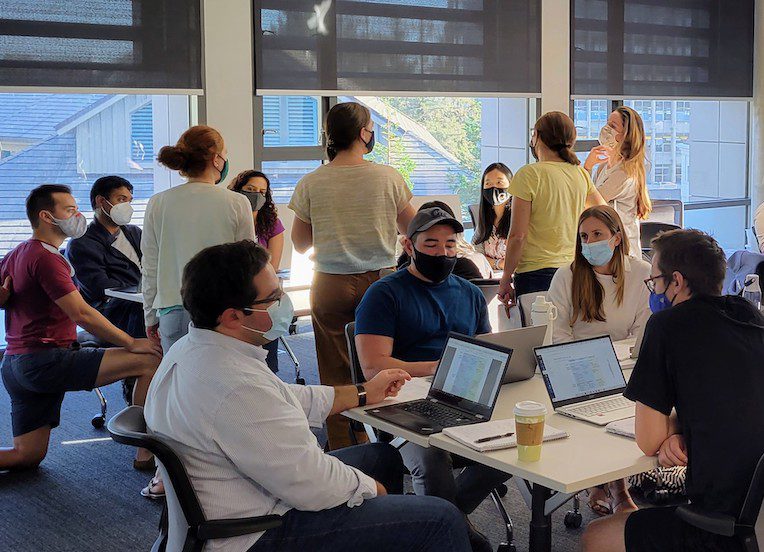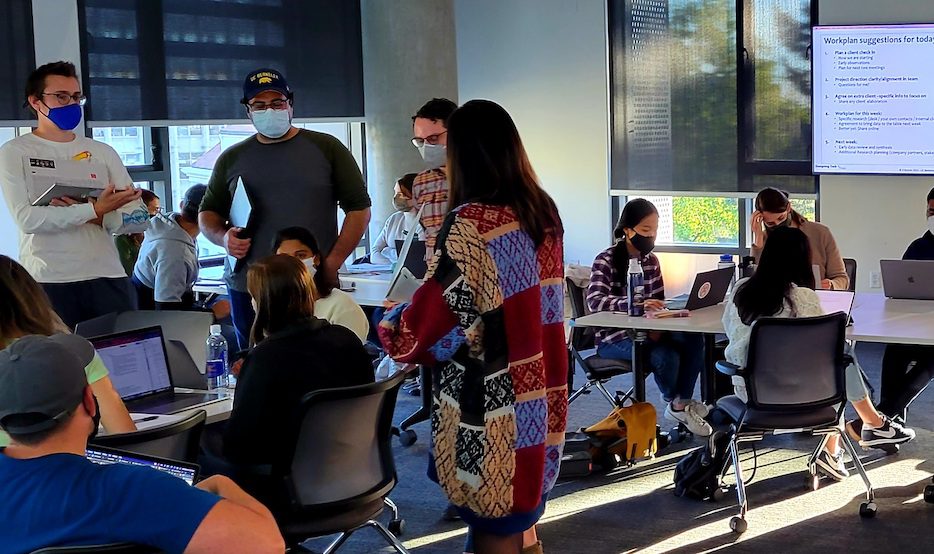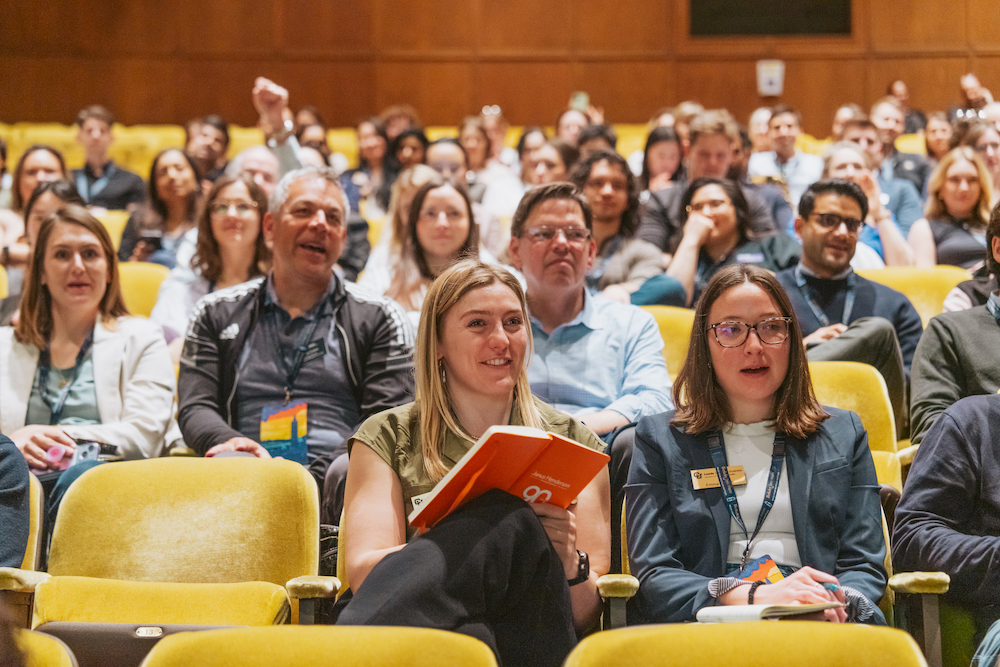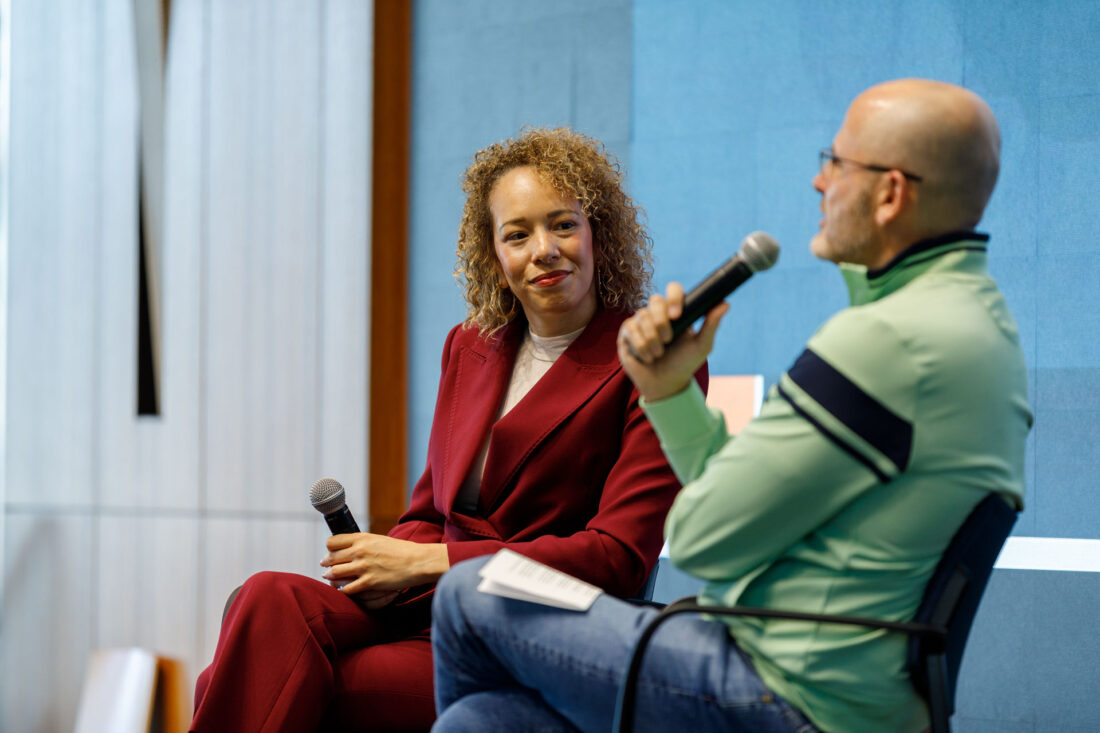Remembering Ikujiro Nonaka, our valued colleague and friend
“Classified” is an occasional series spotlighting some of the powerful lessons being taught in classrooms around Haas.

Julie Kang, MBA 22, used to be concerned about the direction of the tech industry and its negative implications for society.
Then an exciting summer project led her to sign up for a new Berkeley Haas course called Designing Tech for Good, which made Kang see the industry through a different lens. The class called on student teams to work on projects that promoted social good at big tech companies, including Electronic Arts, Dell, Autodesk, and UI Path.

“Tech firms want to demonstrate that their platforms can do good,” said continuing lecturer Dave Rochlin, who co-created and taught the elective for the first time last semester with instructor Adam Rosenzweig, EMBA 19. “We wanted to look at what companies can do to minimize harm but also focus on how they can create positive change. Tech for good initiatives can help firms promote a values-based culture and better connect the firms’ core business with the sustainable development goals and other ESG metrics.”
Creating business value and social value
Rosenzweig, senior manager of product impact at online identity management company Okta, also leads Okta’s “tech for good” strategy, which drove his interest in launching the course. Rosenzweig brings real-world experiences to the course, which enrolls 30 Berkeley Haas students and six students from the Goldman School of Public Policy.
“We want students to learn how to design programs that are good for the world within whatever companies they go to work for,” he said. “If we don’t go out of our way to solve social problems, they won’t solve themselves. It’s critical for leaders to know how to create business value and social value at the same time.”
The students’ projects varied in scope. For Dell, teams worked with the CTO’s external research group on how technology such as virtual reality headsets might be used to increase civic engagement. For UiPath and Autodesk, students focused on how their platforms could best help NGOs to become more effective and identify which NGOs might benefit most.
“It’s critical for leaders to know how to create business value and social value at the same time.” – Adam Rosenzweig.
Joy of connection
The Electronic Arts project aligned perfectly with the course theme. While online games provide joy and community for many, they’re also fertile ground for bad behavior, Rochlin said.
For the project, two student teams split up to work on ideas for both the shooter game franchises (such as Apex) and sports games (such as FIFA) with a goal of supporting the Electronic Arts Positive Play Initiative. “I was thrilled that EA wanted the teams to focus on insights and initiatives relating to the joy of connection rather than just community policing,” Rochlin said.
Kang, who worked on the shooter games project, said when she tried gaming at a younger age, she felt overwhelmed. “I tried to learn but found it difficult to get good fast,” she said. “As a kid, I had negative experiences online with people saying mean things.”
The EA project included three phases: discovery, where team members read up on gaming in forums on online publications before interviewing gamers from different backgrounds. They then developed and presented EA with a framework which focused on both the root causes of bad experiences. Phase three involved coming up with solutions to pitch to the company.

The students recommended several ideas they felt would have impact and were achievable, said Sania Salman, MBA 22. Those ideas included bringing players from online together offline to create micro-communities of people from different schools or affinity groups who engage in tournaments. “This takes the vastness of the digital world community and makes it more accessible,” Salman said.
A second idea involved creating incentives and awards for advanced players to mentor newer players. Kang said she particularly liked the mentoring idea. “That would have been super helpful for me to get better at gaming and solving the isolation that happens with new gamers,” she said.
A second idea involved creating incentives and awards for advanced players to mentor newer players.
“Exceptional” teams
Chris Norris, director of Positive Play at EA, noted that for Electronic Arts and the Positive Play team, “It’s incredibly important that we ensure our experiences are minimally disruptive, while also focusing efforts on amplifying the meaningful connections and moments of joy that games provide.”
Working with the two Haas project teams was exceptional, he added. “The students brought an intellectual rigor and sharp perspective, focused entirely on improving the player experience,” he said.
Rochlin, who recently wrote a Berkeley Haas case on tech for good and human-centered product design, said he’s looking forward to teaching the course again. “This course was a dream for Adam and I,” he said. “Many Haas students have an interest in pursuing careers in tech firms and a desire to find meaningful career work that reflects their values. It doesn’t need to be ‘either/or.'”
Posted in:
Topics:



